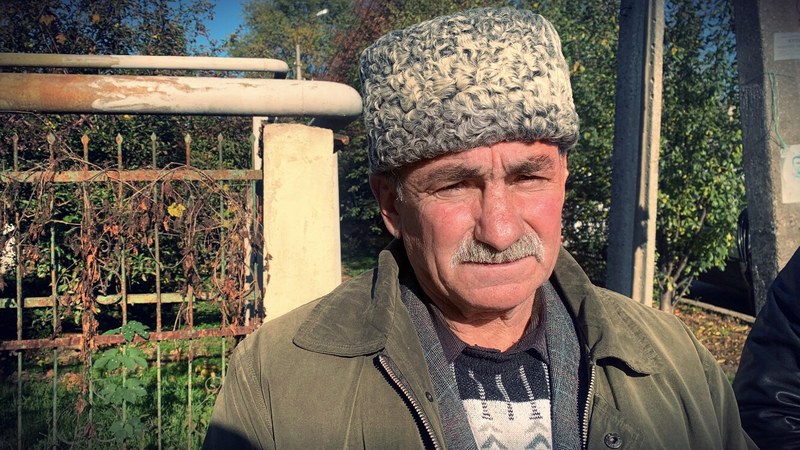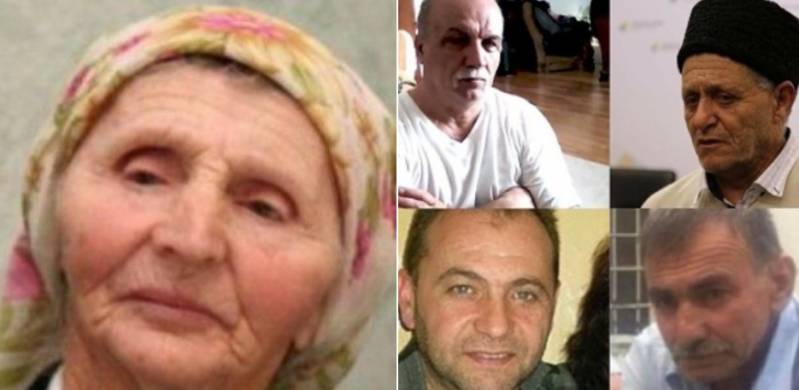Russia challenges compensation awarded former Crimean Tatar political prisoner for torture-like imprisonment

Russia’s Penitentiary Service has challenged a crucial ruling that awarded 64-year-old Kazim Ametov compensation for the inhuman conditions he was held prisoner in for over two years. The conditions in the SIZO [remand prison] in occupied Simferopol are notoriously bad, and for the many political prisoners of Ametov’s age positively dangerous.
Ametov, with his lawyer Rustem Kyamilev, lodged the law suit against Russia’s penitentiary service and police in occupied Crimea late in 2020. He had been imprisoned from 23 November 2017 until 24 January 2019, first in the temporary holding unit in Bakhchysarai and then in the Simferopol SIZO and called the conditions inhuman, degrading and akin to torture. He explained that his health had seriously deteriorated as a result, with chronic illnesses having been exacerbated.
The details provided regarding the conditions had already been set out in an application to the European Court of Human Rights back in 2019. In the Bakhchysarai unit, Ametov was held in an 8 m² cell, without a toilet or ventilation. Instead of some kind of toilet, there was merely a hole in the floor, which was not in any way cordoned off. There was no drinking water nor any hot water in the tap. Russian regulations say that a person can only be held in this unit for 48 hours, yet Ametov was imprisoned there for seven days. He was held there all the time, without any access to fresh air, without hot food or a shower.
He was moved to three different cells in the Simferopol SIZO. The overcrowded conditions there have long been notorious, and Ametov and the others were forced to sleep in turns because there weren’t enough places for everyone. One of the cells had no glass in the windows, and the prisoners were forced to cover the gap with mattresses. All of the cells were damp, with mould everywhere and without any fresh air. The lack of ventilation is particularly hazardous since the cells are small and do not have any partitioning to separate (primitive) toilet facilities. The cells are too cell and lack ventilation, and there are no closed off toilets. Such conditions are tantamount to torture and Ametov, accordingly, asked the court to find the inaction of the staff in both institutions unlawful and to award around half a million roubles in compensation.
Within a month of the first hearing, Ametov was subjected to an armed raid by the Russian FSB in what seemed a clear act of retaliation for his courage in lodging the appeal. Given the degree to which ‘courts’ in occupied Crimea normally provide the rulings demanded of them, it was a surprise on 25 June 2021 when ‘judge’ Maria Domnikova from the Zheleznodorozhny District Court in Simferopol partially allowed Ametov’s claim, awarding him 190 thousand roubles in compensation for the inadequate conditions in the SIZO.
It is that ruling which the Penitentiary Service appealed against, with the appeal being heard by the Russian-controlled Crimean High Court, under ‘judge’ Louisa Yusupova. The Penitentiary Service’s representative, Pyotr Siniukov presented documents allegedly describing the conditions in the SIZO which Siniukov tried to claim were fine. The level of argumentation was, at best, suspect as Siniukov also asked the court to include statements from Ametov’s relatives about food parcels for the political prisoner. This proved, Siniukov claimed, that during his imprisonment, Ametov “was not hungry”. The proof was bizarrely inadequate since, as lawyer Kyamilev rightly noted, it was the penal institution’s obligation to provide food, not that of his client’s relatives.
The ‘court’ is now due to study the material provided by both sides, before the next, and probably last, hearing on 1 February.
Fatal attempt to discredit Crimean Tatars

Kazim Ametov was one of four respected members of the Crimean Tatar community arrested in the violent ‘FSB operation’ on 23 November 2017 which caused the death of 83-year-old Vedzhie Kashka, a world-renowned veteran of the Crimean Tatar national movement.
It was clear from the propaganda at the time in Russian and Russian-controlled media that the aim of the attempted arrest of Vedzhie Kashka and arrests of Kazim Ametov; Bekir Degermendzhy; Asan Chapukh and Ruslan Trubach was to discredit the Mejlis, or self-governing body, of the Crimean Tatar people and Crimean Tatar veterans. In fact, none of them was a member of the Mejlis, but this was systematically claimed in the propaganda, which even alleged, quite falsely, that weapons and drugs had been found during searches. This was one of several political cases which Russia has fabricated since 19 April 2017, when the UN’s International Court of Justice ordered it to withdraw its appalling ban on the Mejlis. This one was shocking because of the fatal use of excessive violence against an 83-year-old woman in ill health and because of the surreal charges. The four men, it was claimed, had been trying to ‘extort’ money from a Turkish national, Yusuf Aitan. During a farcical trial, the prosecution was never able to explain why it had believed the testimony of Aitan when the latter was quite unable to explain why, if the seven thousand dollars in question had been his, he had signed a piece of paper confirming that he was borrowing this money from Vedzhie Kashka. His claim that he had been threatened into doing so was simply absurd given that he was a healthy young man who was supposed to have been frightened by four men in their fifties or sixties, two of whom had potentially life-threatening medical conditions. All four men were held in detention for almost two years before being placed under house arrest and then receiving suspended sentences.





